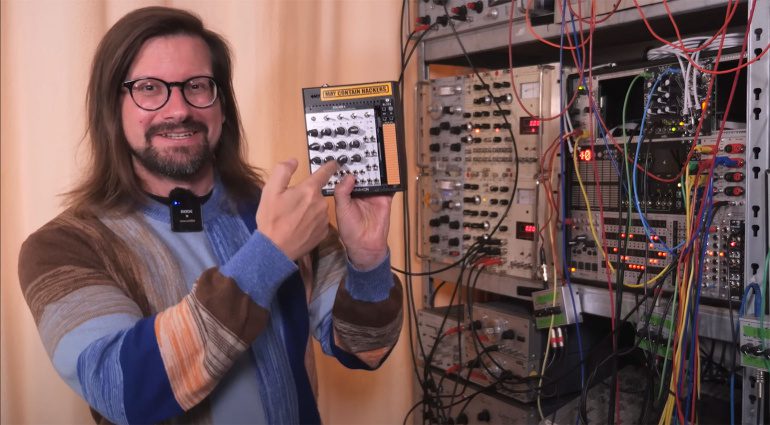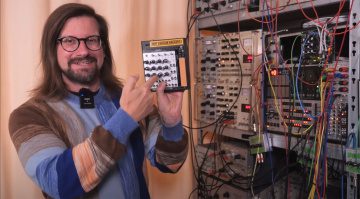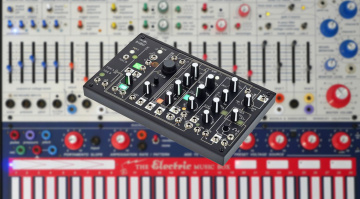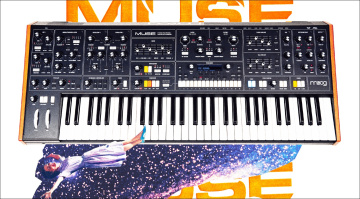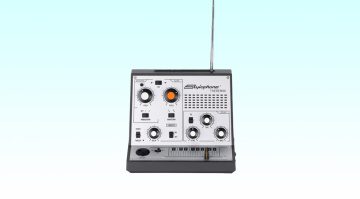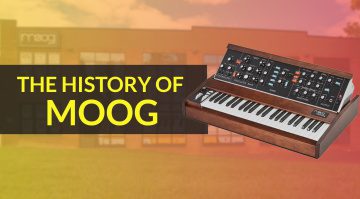Townshend Studio, Hainbach’s Test Equipment, Thereminator 2: Synth Journal
Pete Townshend’s collection of iconic synths gets put to good use at the University of West London’s new Townshend Studio, Hainbach releases his first hardware module, and a legendary app from the early days of iOS is all grown-up now.
Synth Journal
The Townshend Studio Opens at the University of West London
The Townshend Studio at the University of West London officially opened on 10 October 2024. Conceptualized and designed in collaboration with The Who’s Pete Townshend (an Ealing School of Art alumnus), the new facility features 12 principal synthesizers from Townshend’s collection, alongside many other instruments he used throughout his career.
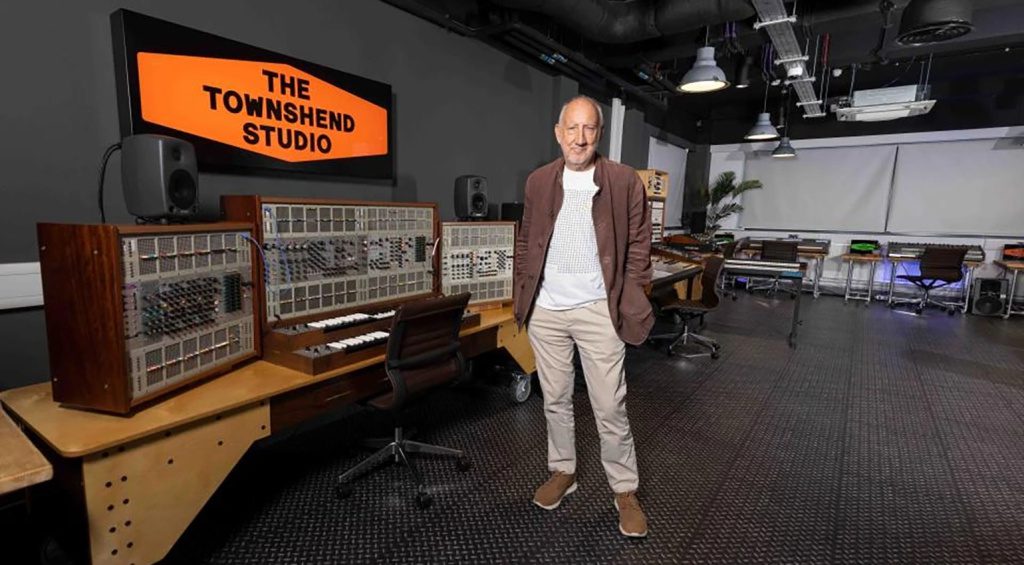
Townshend attended Ealing School of Art (now UWL) in the 1960s and has described his time there as “a revelation”. When he was looking for a home for his synth collection where it would inspire the next generation of musicians and serve as a “catalyst for creativity”, the university was an obvious choice. At the unveiling, Townshend said:
“It’s my hope that the studio will be a creative space for learning, collaboration, experimentation and play, inspired by the musical and artistic legacy of Ealing, an area integral to the development of British music in the 1960s.”
Professor Peter John CBE, Vice-Chancellor and President of UWL, added:
“This is a unique resource for students and the wider public, uniting legacy and contemporary technologies. The studio will explore the potential for creative practice to inform and inspire beyond the arts and into the fields of science, technology, health, humanities and social science.”
The list of synths featured at the Townshend Studio includes some of the most iconic and sought-after instruments of the golden age of analog, alongside some modern reissues and digital classics. Just reading through the list makes my mouth water:
- ARP Model 2500
- EMS Synthi 100
- Moog Model 15 (2015 reissue)
- Moog System 35 (2015 reissue)
- Sequential Circuits Prophet-10 (vintage)
- Roland Jupiter-8
- Synclavier 3200
- Yamaha CS-80
- Yamaha DX-1
- Yamaha GX-1
- Moog Minimoog Voyager XL
- Analogue Solutions Colossus
While I assume that the Townshend Studio will mostly be used by University of West London students and researchers, it is also meant to be an “ideas hub for creative connections and collaborations locally, nationally and worldwide.” For inquiries about the Townshend Studio, contact the university at thetownshendstudio@uwl.ac.uk.

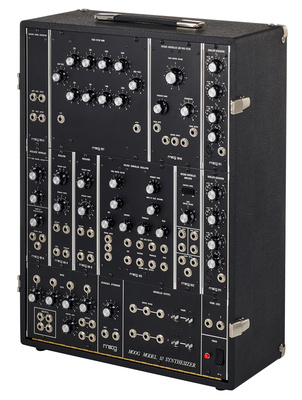

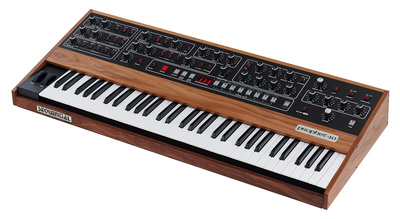

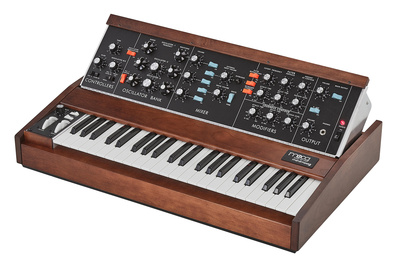
Joranalogue Collide 4: Hainbach’s Test Equipment in a Module
If you’re into experimental music, you’re surely following the Berlin-based artist and YouTuber Hainbach, best known for his creative use of vintage lab equipment. After releasing a string of plugins inspired by his experiments in collaboration with Audiothing, Hainbach has now teamed up with Belgian Eurorack manufacturer Joranalogue Audio Design to create his first hardware module.
Collide 4 is a “Quadrature Spectral Computer” inspired by nuclear-age lock-in amplifiers. Like most vintage test equipment in Hainbach’s collection, these devices weren’t originally designed for audio applications. Their main purpose was to extract specific signals from noise, for example in particle accelerators. Incidentally, the properties required for this also make them ideal for experimental musical applications.
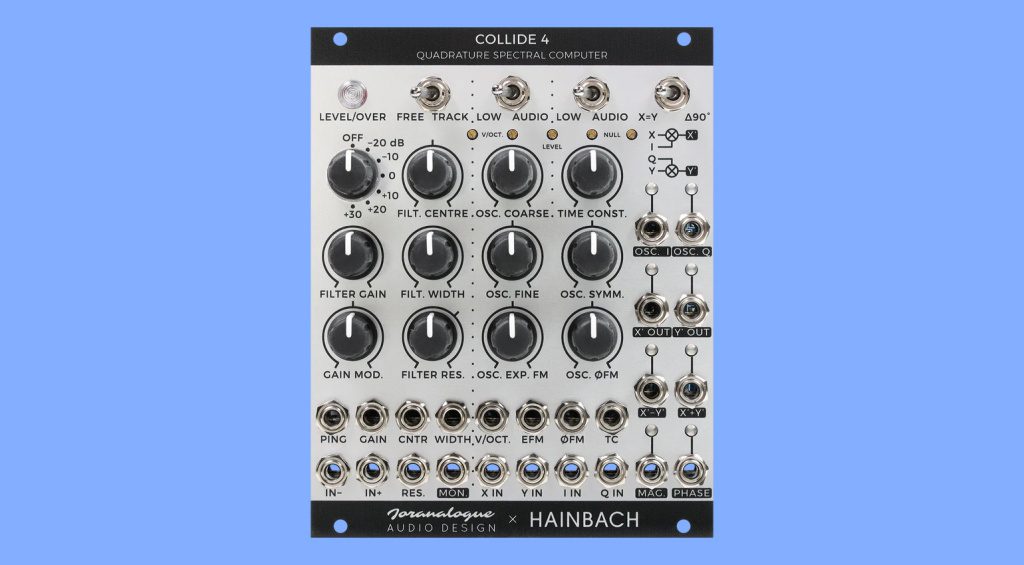
Featuring a pingable filter, multiple gain stages, a quadrature oscillator, a frequency shifter, and dual ring modulators, Collide 4 is both an effects processor for external signals and a sound source. It might seem a bit theoretical and nerdy at first, but once you get the hang of it, it delivers anything from unique percussion sounds to fat basses and leads. It can also “completely evaporate your sound”, Hainbach says. Thanks to its X/Y quadrature topology, it’s also great for stereo applications.
Joranaloge Collide 4 is now available for pre-order from Thomann* for $585 / £544 / €639.

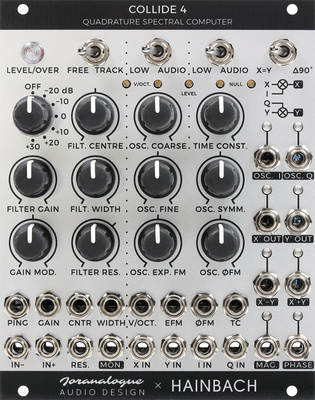
Thereminator 2: The OG iOS Theremin Now Runs on Macs, Too
Back in 2008 – a year after the original iPhone came out –, everyone was still figuring out how to put this new technology to good use. We laughed at hilariously silly apps like the one that made it look like you were enjoying a cold one when you tilted the phone – I think it may have been called iBeer? iOS still had a long way to go before becoming a serious music-making platform. But even back then, some developers realized that multi-touch and the iPhone’s built-in sensors were perfect for expressive musical control.
One of those apps was Thereminator, which used a simple X/Y pad to emulate the Theremin’s dual antennae. You could also control it using the phone’s accelerometer, which came even closer to the notoriously hard-to-control Theremin.
Hasta la vista, baby! Sixteen years later, the developer just released a worthy successor. Thereminator 2 takes the virtual Theremin experience to another level. The new version features an all-new analog-modeled sound engine with eight waveforms, a resonant filter, and much more sonic potential than the original. It also comes with a new MPE-style touch control interface. 51 built-in scales and a note snap feature with adjustable glide make it easy to play.
However, the best news is that Thereminator 2 is now an AUv3 plugin, which means that it also runs on Apple Silicon Macs in addition to iPads and iPhones. The developer says that it works best with MPE-friendly DAWs such as GarageBand, Logic, and Cubasis.
Thereminator 2 is now available from the App Store with a 50% introductory discount for $3.99.



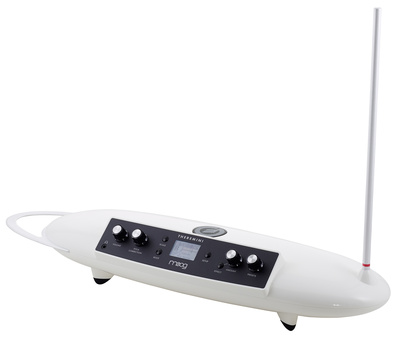
*This post about Townshend Studio and other synth-related news contains affiliate links and/or widgets. When you buy a product via our affiliate partner, we receive a small commission that helps support what we do. Don’t worry, you pay the same price. Thanks for your support!

 3,7 / 5,0 |
3,7 / 5,0 | 